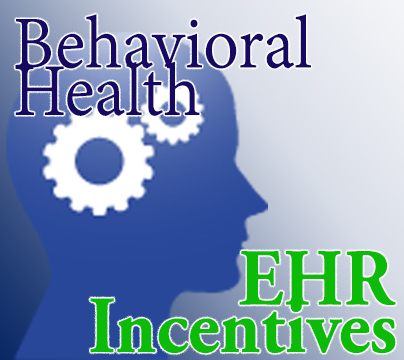Posted By Monique Dever On June 21, 2016
Revised EHR Incentive Program Could Get Behavioral Health and Public Health Agencies on the Same Team

According to HealthIT.gov, “an estimated 26% of Americans age 18 and older are living with a mental health disorder in any given year, and 46% will have a mental health disorder over the course of their lifetime. In addition, an estimated 8% of Americans are in need of drug or alcohol abuse treatment.” Mental health and drug addiction treatments are a huge public health concern. So, with staggering percentages as these, wouldn’t it make sense to have a collaborative approach and treatment plan for each patient?
Good mental health is crucial for good physical health and should be treated under the same governing rules. However today, behavioral health providers treating mental and substance abuse disorders are excluded from the Meaningful Use Electronic Health Record (EHR) incentive program. With luck, this may soon change. For its Fiscal Year 2017 budget, the Department of Health and Human Services (DHHS) has proposed to Congress “to add certain behavioral health providers to the Medicare and Medicaid Electronic Health Record Incentive Programs, which is a necessary first step to realizing the goal of fully integrating and coordinating behavioral health and medical care.” Among the list of proposed eligible providers (EPs) are psychologists, psychiatric hospitals, community mental health centers, residential and outpatient mental health and substance abuse disorder treatment facilities.
We are already seeing some behavioral health agencies successfully adopting EHRs. Some organizations can even qualify for meaningful use incentives if they have physicians and/or nurse practitioners affiliated with their facilities, but many do not. Extending the list of EPs to include psychologists, not only makes EHR adoption more affordable for behavioral health agencies, it will help align the goals of interoperability across the spectrum of patient care, and increase the sharing of medical information.
The DHHS proposal states “the expansion is meant to facilitate the integration of behavioral health and medical care, and promote the sharing of clinical data needed to provide better patient-centered care.” This is a much more holistic approach to health care which puts the patient in the middle and all providers on the same team.